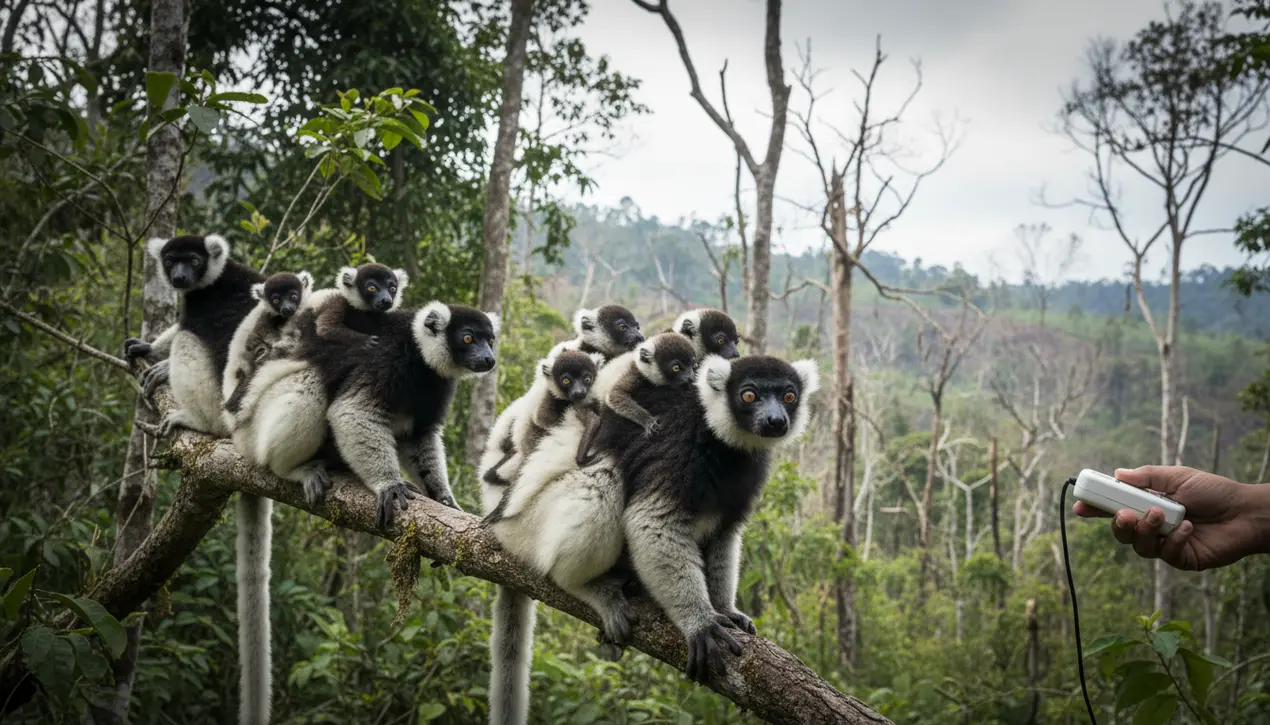
SciencebiologyAnimal Behavior
Investigating a Treetop Baby Boom in Madagascan Lemurs
RA
Rachel Adams
3 hours ago7 min read1 comments
Deep within the fragmented, emerald-canopied forests of Madagascar, a curious and seemingly contradictory phenomenon is unfolding among a population of lemurs: a sudden, pronounced spike in pregnancies. To the untrained eye, this treetop baby boom might signal a thriving community, a victory for conservation in a nation that serves as the sole sanctuary for these iconic primates.However, for biologists and ecologists on the ground, this surge in infant lemurs is less a cause for celebration and more a potential distress flare, a biological response to intense environmental stress that may ultimately foreshadow a deeper crisis for the species. This reproductive burst is a classic, though alarming, survival strategy known as the 'fight or flight' response applied to procreation.When animal populations face extreme pressures—be it from habitat fragmentation, a sudden scarcity of resources, or the escalating threats posed by climate change—their physiological systems can trigger a last-ditch effort to ensure genetic continuity. It’s a desperate race against time, an evolutionary gambit where the imperative to reproduce *now* overrides the long-term calculations of sustainability.The lemurs, in their ancient wisdom, appear to be sensing a profound shift in their world, a deterioration so acute that their best chance for lineage survival is to produce as many offspring as possible before conditions worsen beyond a point of no return. Consider the context of Madagascar itself, a biodiversity hotspot bleeding its unique life at an alarming rate.Rampant deforestation for slash-and-burn agriculture and illegal logging has carved the island's lush landscapes into isolated pockets, creating green islands in a sea of eroded soil. These forest fragments become ecological traps, where lemur populations are cut off from genetic exchange and forced to compete for dwindling food sources.The nutritional stress alone can disrupt normal reproductive cycles, but in some cases, it flips a switch, pushing females into a state of reproductive overdrive. This isn't a sign of health; it's a symptom of a system in shock.Expert primatologists working in regions like the Ranomafana National Park or the dwindling corridors of the eastern rainforests have observed similar patterns in other species under duress. The initial data, gathered through meticulous field observation and hormonal analysis, points to a correlation between heightened cortisol levels—the primary stress hormone—and these unexpected breeding events.The consequences of this baby boom are multifaceted and deeply concerning. A sudden influx of infants places an immense strain on the already stressed adult population and the limited resources of their habitat.Mortality rates for both mothers and newborns can skyrocket, as the forest simply cannot support the increased demand for fruits, leaves, and insects. Furthermore, this strategy depletes the energy reserves of the entire group, potentially leading to a catastrophic population crash once the immediate boom subsides.Instead of a steady, sustainable recovery, we risk witnessing a 'boom-and-bust' cycle that leaves the species more vulnerable than before. This lemur population's story is a microcosm of a global ecological narrative, where the most visible signs of trouble are often misinterpreted.It underscores the critical need for nuanced, long-term conservation strategies that look beyond simple headcounts and delve into the underlying health and stressors of an ecosystem. Protecting these primates requires more than just guarding the trees they live in; it demands restoring the connectivity of their habitats, mitigating human-wildlife conflict, and addressing the root causes of climate change. The treetop nurseries of Madagascar are not just a wonder of nature; they are a silent, urgent plea, written in the language of life itself, warning us of the fragile tipping points we are pushing our planet's most unique creatures toward.
#lemurs
#Madagascar
#baby boom
#population
#conservation
#ecology
#featured
Stay Informed. Act Smarter.
Get weekly highlights, major headlines, and expert insights — then put your knowledge to work in our live prediction markets.
Related News
Comments
Loading comments...
© 2025 Outpoll Service LTD. All rights reserved.